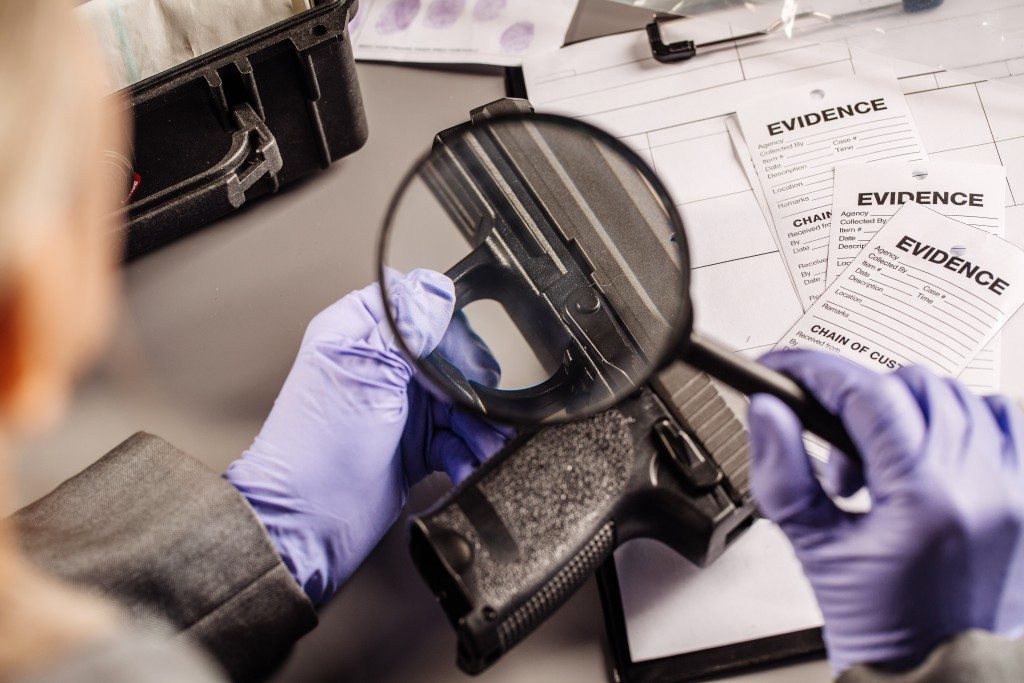 There are various paths that you can take when you want to become a crime scene investigator (CSI). You have to undertake rigorous training and empirical coursework through a law enforcement agency, and take a criminal investigator certification from a training school or an internship program at a laboratory or other forensic facilities.
There are various paths that you can take when you want to become a crime scene investigator (CSI). You have to undertake rigorous training and empirical coursework through a law enforcement agency, and take a criminal investigator certification from a training school or an internship program at a laboratory or other forensic facilities.
One common path that interested applicants take is the academic and training route.
Police-trained and civilian candidates for CSI must have a high school diploma. Those aspiring for a career in this field will find it useful to join different volunteer programs related to criminal investigations. There are universities that also offer CSI summer camps and laboratory training to secondary school students and graduates.
Offices such as CSI Arizona also host forensic science contests for high school and middle school students. They have training in evidence gathering, crime scene analysis, as well as presentations of findings.
Pursuing a Degree in CSI or Joining Law Enforcement Academy
 Aspiring investigators may also enroll in a law enforcement academy and take specialized training in the CSI field. On the other hand, they may also take a two or four-year college degree or program various related fields such as criminal justice, chemistry, biology and forensics.
Aspiring investigators may also enroll in a law enforcement academy and take specialized training in the CSI field. On the other hand, they may also take a two or four-year college degree or program various related fields such as criminal justice, chemistry, biology and forensics.
Some law enforcement training programs are also offered in partnership with a local college or university. Some community colleges have associate courses and CSI fast track classes, which offer certifications on investigative photography, criminal investigation and bloodstain evidence.
Students will also be allowed to explore internship programs to develop their CSI skills and use the knowledge they learn from their college program or degree. Some of the well-known training grounds are the Central Intelligence Agency (CIA) Internship Program and the U.S. Secret Service Internship.
Getting a Professional Certification
After taking formal education and training, aspiring CSI candidates may apply for a professional certification that will increase their employment potential. Qualifications to become a crime scene investigator will vary by state and law enforcement agency.
There are also professional associations of degree holders in CSI such as the American Academy of Forensic Science and Microscopy Society of America. Aspirants are also encouraged to join any association related to their field of interest and career.
Pursuing Graduate Education
This is an optional path that crime scene investigators can take. Some pursue graduate education in CSI to further develop their chances of employment and qualify for higher positions or higher salaries. Some universities offer Master of Sciences in Crime Scene Investigation and Graduate Programs in Forensic CSI. Those who are already employed as investigators may also opt to pursue graduate programs to gain additional credentials, which they can use for promotion to a higher position.
Qualifications for applicants can vary by state, region or the employing entity. These steps are just the basic pathway that is commonly taken by people who wish to join law enforcement as CSIs. Those who aspire to become crime scene investigators are encouraged to constantly check with their local law enforcement offices to verify the requirements for application and employment.

